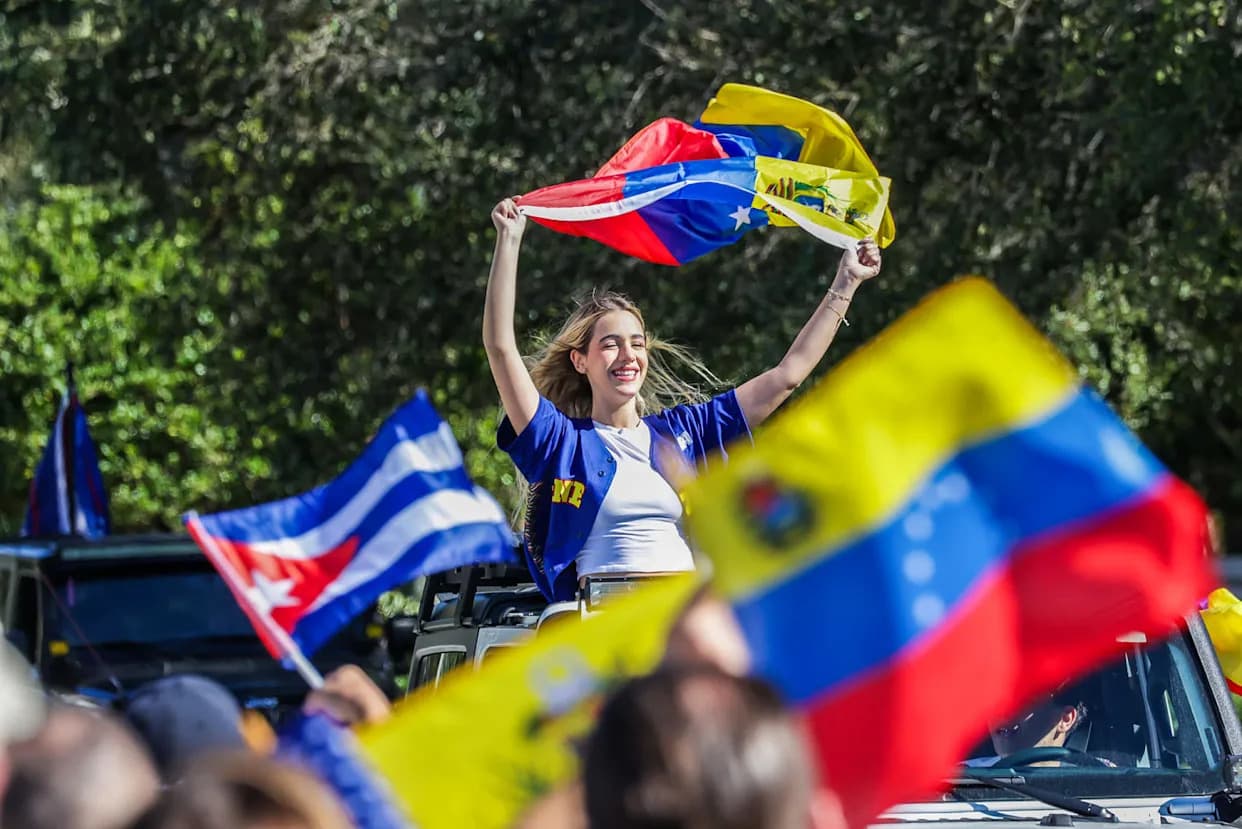Human Rights Watch and Cristosal report that dozens of Venezuelans deported from the U.S. to El Salvador’s Cecot prison were subjected to beatings, sexual violence and harsh punitive measures, based on interviews with 40 of the 252 deportees. The organizations say roughly half of those sent had no criminal records and only about 3% had U.S. convictions for violent crimes. DHS defended the deportations as targeting alleged Tren de Aragua and MS-13 members, while former detainees and the report call for independent investigations into possible human rights violations.
Human Rights Watch: Venezuelans Deported from US to El Salvador’s Cecot Prison Report Torture and Abuse

Report: Venezuelans Deported from U.S. to El Salvador’s Cecot Prison Report Torture, Sexual Abuse and Psychological Harm
A joint investigation by Human Rights Watch (HRW) and Central American NGO Cristosal alleges that dozens of Venezuelans deported from the United States earlier this year were subjected to physical and sexual violence, cruel treatment and psychological abuse after being transferred to El Salvador’s Terrorism Confinement Center (Cecot).
Key findings
The report, released Wednesday, is based on interviews with 40 of the 252 Venezuelans who were transferred to Cecot. Interviewees described repeated beatings by guards, placement in solitary confinement for protesting, threats and humiliation, and conditions that led some detainees to consider or attempt suicide. HRW and Cristosal say the findings point to systemic human rights violations within El Salvador’s prison system.
Personal accounts
"The nightmare began the moment they took me off the plane,"
— Gonzalo, 26, from Zulia, Venezuela, quoted in the report.
Those interviewed described being beaten during routine cell searches with kicks, punches and batons. Three detainees reported instances of sexual violence. Multiple inmates said guards taunted them with statements such as "you will never get out alive" and that "nobody knew they were there," which compounded feelings of isolation and despair. Several detainees reported suicidal ideation; at least one recounted a suicide attempt.
Accounts corroborated by former detainees
Many of the report’s findings align with interviews conducted by CNN in July with former Cecot detainees who had been repatriated to Venezuela. Former inmates, including Jerce Reyes, José Mora and Rafael Martínez, described frequent beatings, punitive isolation, fractured limbs from alleged assaults, and the use of rubber bullets fired into cells during protests for basic rights and communication access.
Official responses
In response to inquiries, the U.S. Department of Homeland Security (DHS) defended the deportations. A statement attributed to Assistant Secretary Tricia McLaughlin said:
"At President (Donald) Trump’s direction, DHS deported nearly 300 Tren de Aragua and MS-13 terrorists to the Terrorism Confinement Center (CECOT) Prison in El Salvador, where they no longer pose a threat to the American people."
HRW and Cristosal dispute the characterization of the deportees as uniformly criminal or gang-affiliated: their report indicates roughly half of those sent to Cecot had no criminal records and that only about 3% had been convicted in the United States of a violent or potentially violent offense. The organizations argue the deportations and subsequent treatment raise serious questions about complicity and oversight.
Background and legal concerns
The report accuses El Salvador’s prison system of systematic abuses and suggests U.S. authorities may bear responsibility for sending individuals to conditions where their rights could be violated. The deportations were presented by U.S. officials as an effort to remove alleged members of criminal networks, but the report’s findings and the criminal-record data cited raise concerns about due process, verification of allegations, and protections for deported individuals.
What remains unclear
Human Rights Watch and Cristosal base their conclusions on interviews and available records, but broader independent verification and official investigations would be required to establish full accountability. CNN and other outlets sought comment from El Salvador’s presidency and its prison directorate; El Salvador has previously maintained that it respects detainees’ human rights and that its prison system complies with applicable standards.
Next steps
The report calls for independent investigations into the alleged abuses, greater transparency from both U.S. and Salvadoran authorities about the basis for the deportations, and measures to ensure that people returned to other countries are not placed at risk of torture or other grave abuse.
Help us improve.


































